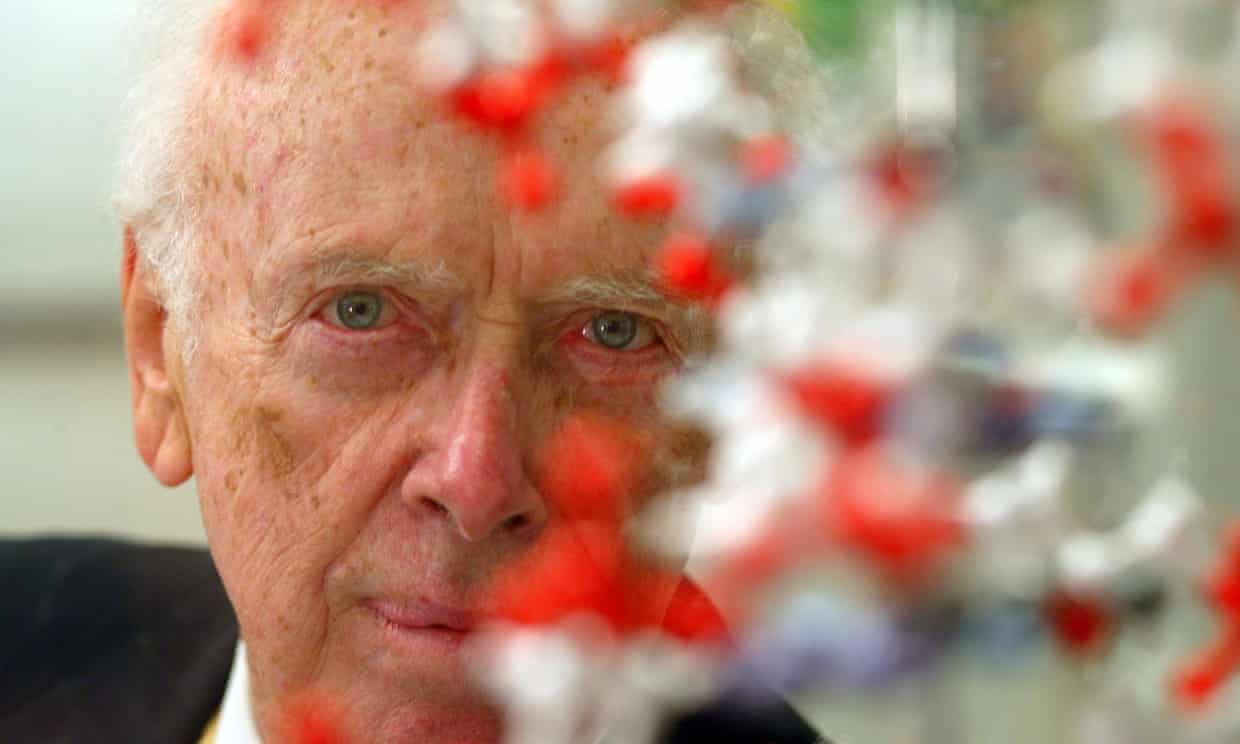Science
James Watson, Key Figure in DNA Discovery, Dies at 97

James Watson, the renowned American molecular biologist who played a pivotal role in the discovery of the DNA double helix, passed away on November 6, 2025, at the age of 97. His groundbreaking work in collaboration with Francis Crick at Cambridge University in 1953 transformed the field of genetics and earned them a shared Nobel Prize in Physiology or Medicine in 1962. Watson’s contributions to science were matched by his controversial personality, which often alienated colleagues.
The discovery of the structure of DNA, or deoxyribonucleic acid, marked a significant turning point in the understanding of genetic inheritance. Watson and Crick demonstrated that DNA is composed of two strands forming a double helix, with bases adenine, thymine, guanine, and cytosine pairing specifically to encode genetic information. This revelation not only explained the mechanics of inheritance but also paved the way for advancements in numerous scientific fields, including medicine, biology, and forensics.
Watson vividly recounted the moment of discovery in his 1968 memoir, The Double Helix, reflecting on how, on February 28, 1953, Crick triumphantly declared, “We have discovered the secret of life,” after they cracked the genetic code during their research at the Cavendish Laboratory.
Early Life and Academic Journey
Born on April 6, 1928, in Chicago, Watson was recognized as a child prodigy, entering the University of Chicago at just 15 years old. His early interest in genetics was nurtured under the mentorship of Hermann Muller, a key figure in the field who demonstrated that genes could mutate. Watson’s ambition led him to pursue structural studies of DNA after encountering an X-ray diffraction image of DNA produced by Maurice Wilkins, a biophysicist at King’s College London.
Watson’s move to Cambridge in the early 1950s was facilitated by his mentor, Salvador Luria, who helped secure a research assistant position for him at the Cavendish Laboratory. There, he partnered with Crick, who had a background in physics and a keen interest in biological molecules. Their collaboration, despite their contrasting personalities—Watson’s brashness and Crick’s intellectual confidence—proved highly effective.
Their approach to understanding DNA involved creating physical models based on X-ray data, leading to the identification of the double helix structure. Their seminal paper, published in the journal Nature, included the now-famous understatement regarding the implications of their findings for genetic material replication.
Legacy and Controversy
Following their Nobel recognition, Watson’s career flourished. He became a senior research fellow at the California Institute of Technology and later moved to Harvard University, where he conducted significant research into RNA (ribonucleic acid) and protein synthesis. In 1968, Watson was appointed director of the Cold Spring Harbor Laboratory in New York, transforming it into a leading institution in cancer research and molecular biology.
Watson’s role in the Human Genome Project, launched in 1990, aimed to sequence the entire human genome. Despite initial skepticism, the project led to major advancements in genetic research and the creation of new scientific disciplines. By 2003, researchers had successfully mapped the genomes of several organisms, including humans.
Despite his scientific triumphs, Watson’s career was marred by controversy stemming from his remarks on intelligence and race. In 2007, he faced significant backlash after suggesting that intelligence could be linked to racial differences. His comments led to his resignation from Cold Spring Harbor Laboratory and a tarnished reputation within the scientific community.
Watson’s legacy is complex; he is often remembered for his pivotal role in unraveling the mysteries of DNA while also facing criticism for his public statements and the ethical implications of his work. His passing marks the end of an era in molecular biology, leaving behind a mixed legacy of groundbreaking scientific achievement intertwined with personal and professional controversies.
James Watson is survived by his wife, Elizabeth, their two sons, Rufus and Duncan, and a grandson. His contributions to science will be remembered alongside the ethical debates they often sparked, a testament to the profound impact of his life’s work.
-

 Science3 months ago
Science3 months agoToyoake City Proposes Daily Two-Hour Smartphone Use Limit
-

 Health3 months ago
Health3 months agoB.C. Review Reveals Urgent Need for Rare-Disease Drug Reforms
-

 Top Stories3 months ago
Top Stories3 months agoPedestrian Fatally Injured in Esquimalt Collision on August 14
-

 Technology3 months ago
Technology3 months agoDark Adventure Game “Bye Sweet Carole” Set for October Release
-

 World3 months ago
World3 months agoJimmy Lai’s Defense Challenges Charges Under National Security Law
-

 Lifestyle3 months ago
Lifestyle3 months agoVictoria’s Pop-Up Shop Shines Light on B.C.’s Wolf Cull
-

 Technology3 months ago
Technology3 months agoKonami Revives Iconic Metal Gear Solid Delta Ahead of Release
-

 Technology3 months ago
Technology3 months agoApple Expands Self-Service Repair Program to Canada
-

 Technology3 months ago
Technology3 months agoSnapmaker U1 Color 3D Printer Redefines Speed and Sustainability
-

 Technology3 months ago
Technology3 months agoAION Folding Knife: Redefining EDC Design with Premium Materials
-

 Technology3 months ago
Technology3 months agoSolve Today’s Wordle Challenge: Hints and Answer for August 19
-

 Business3 months ago
Business3 months agoGordon Murray Automotive Unveils S1 LM and Le Mans GTR at Monterey









